KETO LOW-CARB TURKEY BURGERS (HEART HEALTHY)

This Keto Turkey Burger is fabulous for heart health! I am a fan of all types of Keto Low-Carb cuisine, including Chinese, Japanese, and Thai. Many of these cultural recipes include soy sauce. Soy sauce is an ingredient that is not KETO LOW-CARB compliant.
Those living a low sodium and/or gluten-free lifestyle or taking part in a Keto Low-Carb lifestyle usually refrain from using soy sauce. Soy sauce typically contains wheat (grain) and is super high in sodium. Low-sodium versions are available, however.
WHAT IS UMAMI, THE FIFTH TASTE SENSATION?
The Keto Turkey Burger is packed with umami. We are addicted to soy sauce as it is high in the 5th taste sensation called umami. Umami is the Japanese word for “yummy.” Umami is what we refer to as roundness and depth of flavour. This 5th taste sensation is not a combination of the other taste sensations of sweet, sour, bitter, salty. That is often a misconception. Umami is a sensation all its own, providing us with that comfort food feeling. It gives us that feeling of satisfaction after eating spaghetti, Chinese food (with soy sauce), ripe tomatoes, cooked potatoes, and aged cheeses like Parmesan. Umami hits the back of our palate, leaving us with a craving for more.
MSG:
Remember years ago Chinese food always contained MSG? That’s the acronym for Monosodium Glutamate. MSG is a flavour enhancer. The “Monosodium” contains the sodium salt of glutamate acid. The Glutamate (a naturally occurring amino acid found in many foods) is the umami, that savory experience! When found naturally, the umami is simplistic. If the food is slow-cooked in some form or aged the umami becomes synergistic and many times more flavorful. MSG has for a long time been linked to headaches and other side effects. Now take-out Chinese food is made without MSG.
Ketchup:
In North America, we are addicted to Ketchup. Ketchup is slow-roasted tomatoes high in synergistic umami. That’s one of the many reasons we love ketchup so much. It is our “go-to” condiment loaded in synergistic umami.
Asian cuisine also includes an umami- rich condiment called soy sauce. Soy sauce contains large amounts of free glutamic acid, which is the source of that umami taste.
If we are committed to eating in a healthy way, it’s important to watch our sodium intake. Consuming soy sauce freely can blow this commitment you have to a low-sodium diet right out of the bottle!
As I’ve written about in the past, consuming too much sodium can possibly lead to high blood pressure, heart disease, stroke, and cause calcium loss. We should consume no more than 700 milligrams or fewer per meal. If we eat three meals per day, that’s 2100 grams of sodium consumed in moderation.
Soy Sauce:
When enjoying dishes and foods containing soy sauce, our sodium intake can dramatically increase if we are not diligent about keeping it low. Did you know that one tablespoon of light soy sauce used in Cantonese cuisine contains 1190 milligrams of sodium? That’s almost half of the recommended daily requirement in one tablespoon! Dark soy sauce used in Chinese and Taiwanese dishes is also high in sodium, over 900 milligrams per tablespoon. Japanese Kikkoman soy sauce contains 920 milligrams of sodium per tablespoon. Kikkoman’s low sodium soy sauce contains 580 milligrams per tablespoon. This means that consuming just two tablespoons of this condiment almost uses up your daily recommended requirement.
When do we ever stick to just one tablespoon of soy sauce when splashing this condiment on Chinese fried rice? Do you keep track of how many tablespoons of soy sauce you actually consume with your sushi?
WHAT IS COCONUT AMINOS?
The Keto Turkey Burger uses coconut aminos. Coconut Aminos is a salty, savory seasoning sauce made from the fermented sap of coconut palm and sea salt. It is soy-free, wheat-free, and gluten-free, lower in sodium, and loaded with umami. One tablespoon of coconut Aminos is 360 milligrams of sodium. Coconut Aminos is lighter than Kikkoman soy sauce with a slightly sweeter tone and far less saltiness. I actually prefer this condiment to my once favorite Kikkoman brand. Use coconut amino is all the same ways you would normally use soy sauce and at the same 1 to 1 ratio. It can be found in bulk food stores, health food stores, and now in many supermarkets.
WHAT IS THE NUTRITIONAL VALUE OF KETO TURKEY BURGERS?
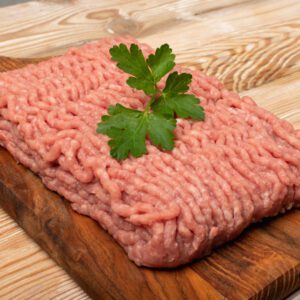
Ground turkey is a lean source of protein, providing about 21 grams of protein per 3-ounce (85-gram) serving. It is relatively low in fat, with around 8 grams of total fat per serving, but the exact fat content can vary based on the turkey’s lean-to-fat ratio. Additionally, ground turkey contains essential nutrients such as iron, zinc, phosphorus, and B vitamins, contributing to a well-rounded nutritional profile. However, the overall nutritional content can depend on factors like preparation methods and added ingredients.
WHAT ARE THE TASTE SENSATIONS OF KETO TURKEY BURGERS?
The predominant taste sensation of the sauce on the Keto Turkey Burger is saltiness, due to the coconut aminos.
WHAT ARE THE INGREDIENTS IN KETO TURKEY BURGERS?
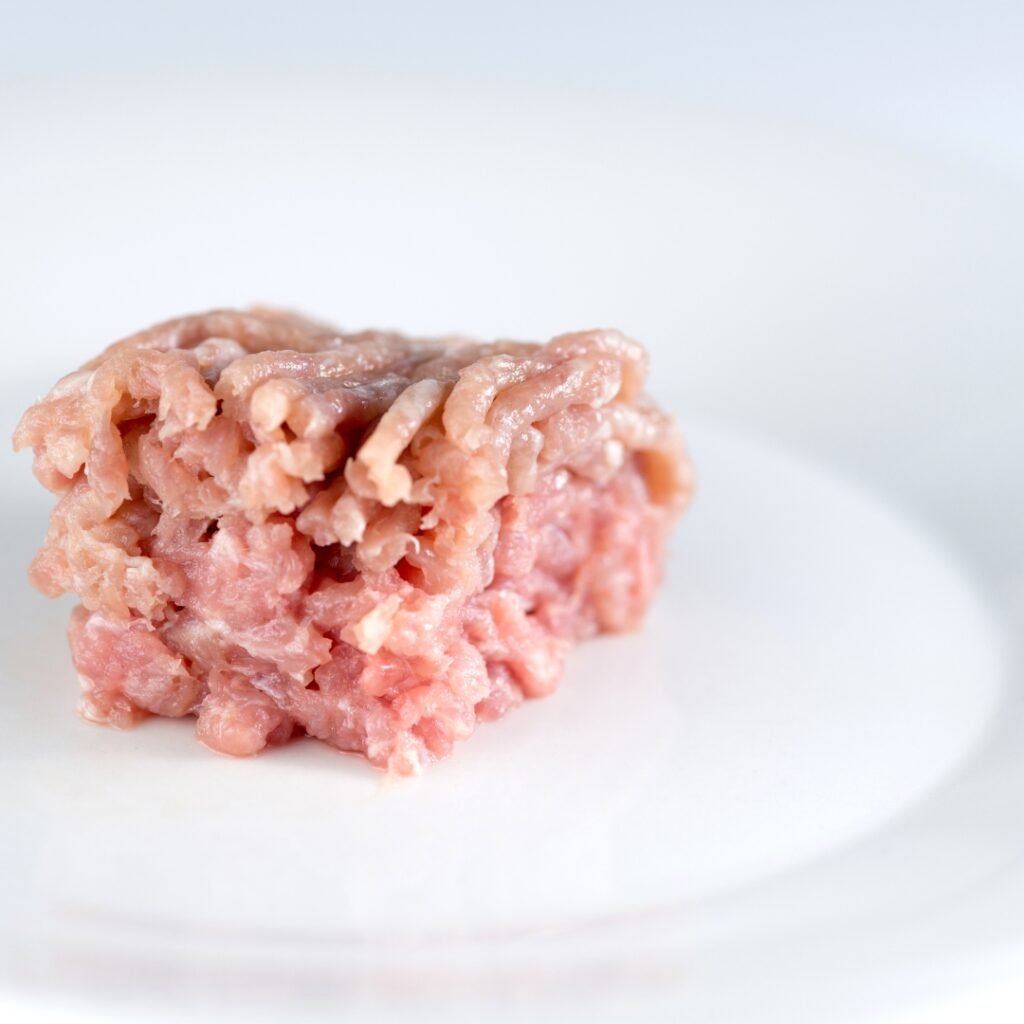
Ground Turkey:
Ground turkey offers health benefits primarily due to its high protein content, which supports muscle growth and repair while aiding in weight management by promoting satiety. It is a good source of essential nutrients like iron and B vitamins, contributing to overall energy metabolism and blood health. Choosing lean ground turkey can be a heart-healthy option, as it is lower in saturated fat compared to higher-fat meats, potentially supporting cardiovascular well-being.

Eggs:
Eggs are a nutrient-dense food, rich in high-quality proteins that support muscle development and repair. They contain essential vitamins and minerals, including B vitamins, choline, and selenium, which contribute to brain health, metabolism, and antioxidant defense. Despite past concerns about cholesterol, research suggests that moderate egg consumption can be part of a healthy diet and may even positively impact cholesterol profiles for many individuals.

Carrots (Not Keto):
Carrots are not keto. But you can enjoy them in small amounts within a low-carb diet. They are rich in beta-carotene, a precursor to vitamin A, which promotes good vision, immune function, and skin health. They contain antioxidants like carotenoids, which may help protect cells from damage and reduce the risk of chronic diseases. The fiber content in carrots supports digestive health, aiding in regular bowel movements and promoting a feeling of fullness, which can be beneficial for weight management.
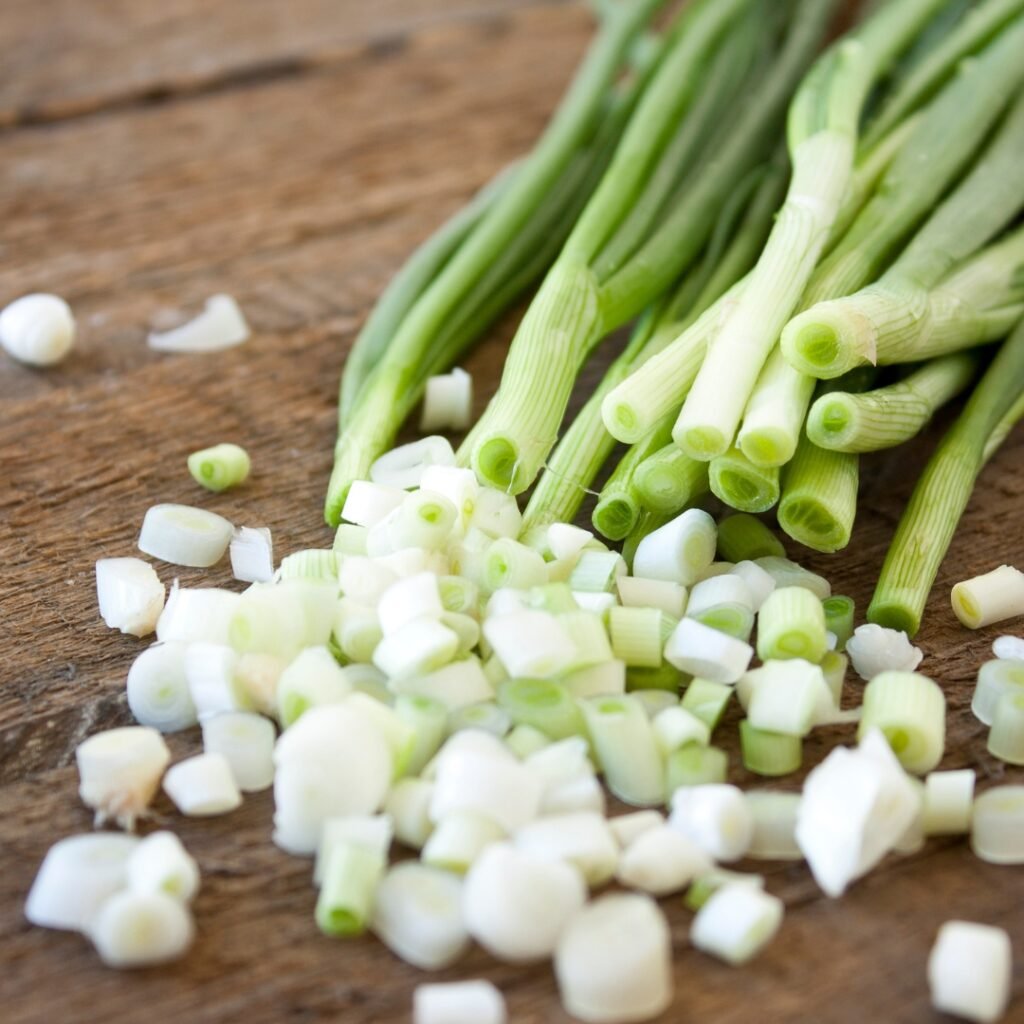
Green Onion:
Green onions are low in calories and a good source of essential nutrients like vitamin K, which is important for blood clotting and bone health. They also contain antioxidants, such as flavonoids, which may help reduce inflammation in the body and support overall well-being. Additionally, green onions add flavor to dishes without the need for excessive salt or unhealthy condiments, making them a nutritious and flavorful addition to a balanced diet.
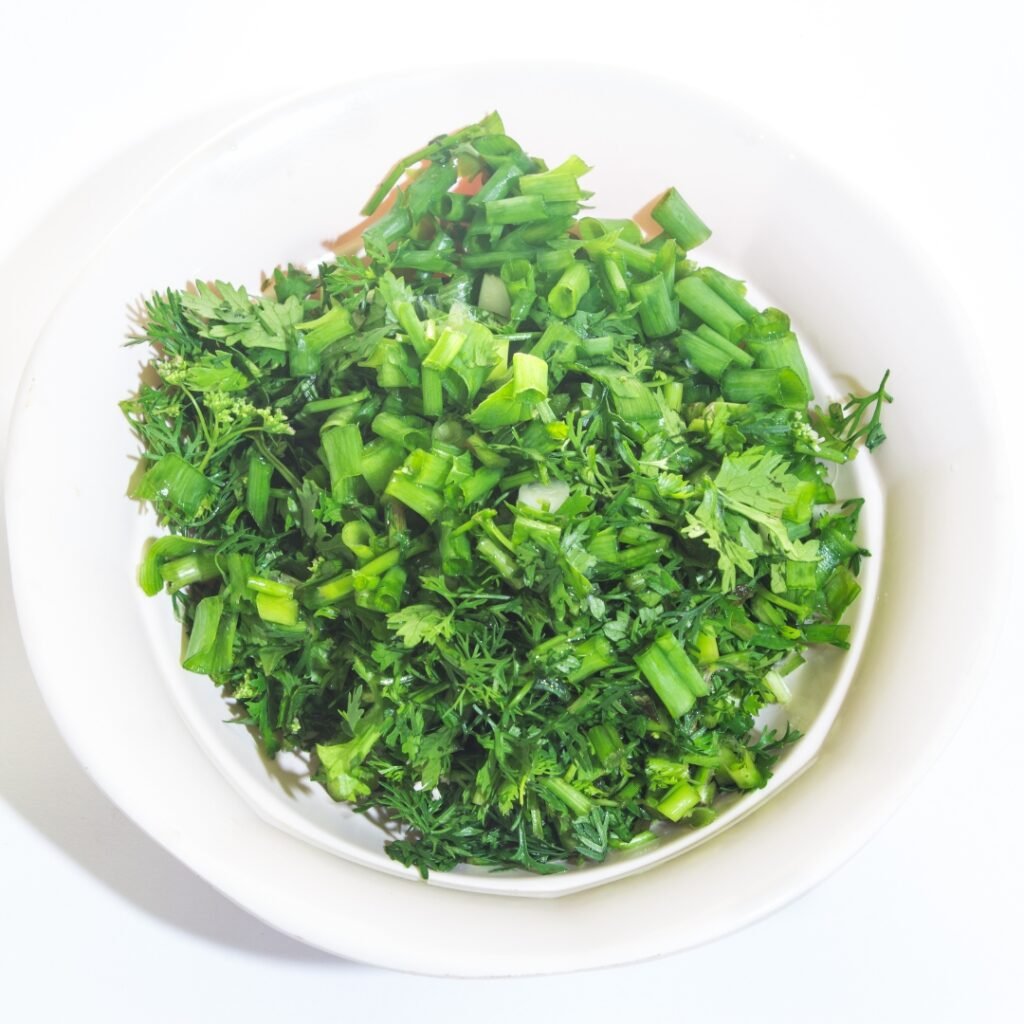
Fresh Cilantro:
Fresh cilantro is a rich source of antioxidants, including quercetin, which may help combat inflammation and promote overall health. It contains vitamins A and K, supporting vision, skin health, and bone density. Cilantro also has potential antibacterial properties and may aid in digestion, contributing to a well-rounded approach to maintaining a healthy lifestyle.
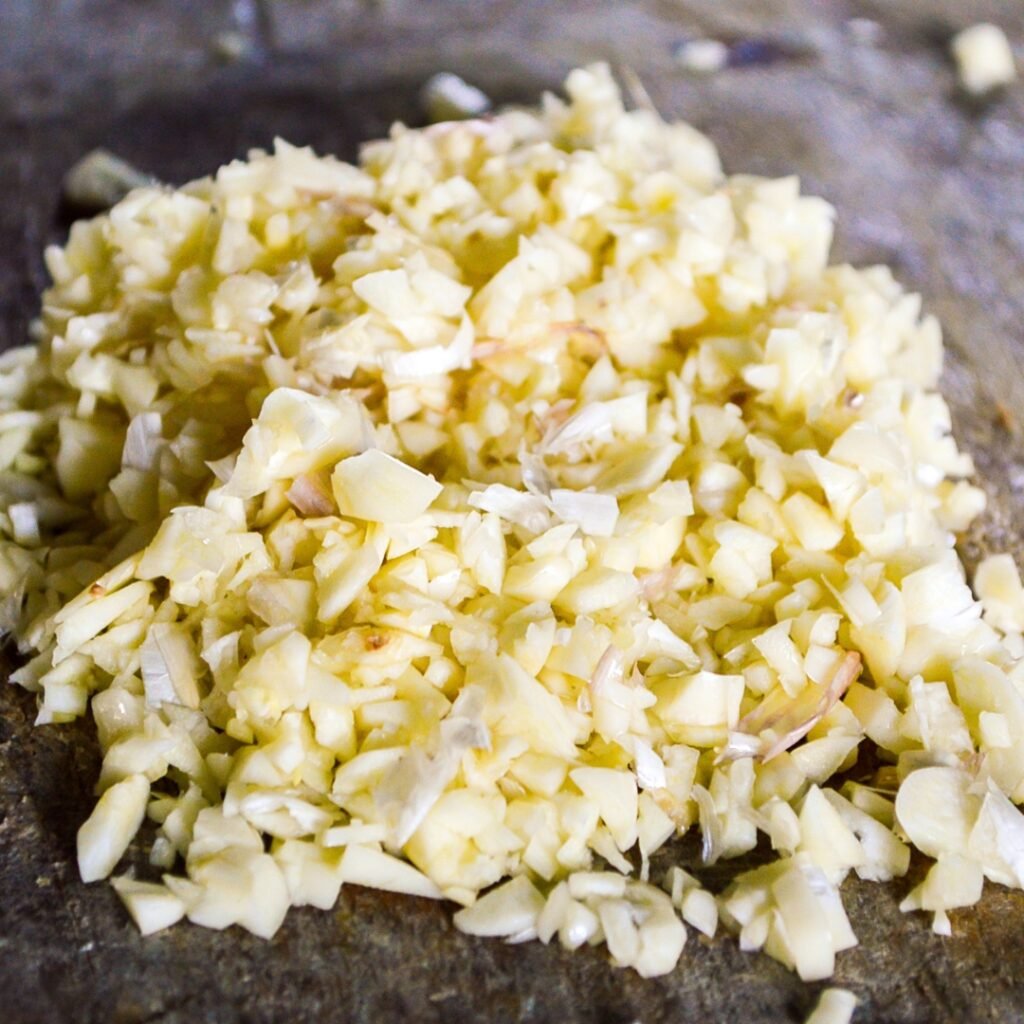
Fresh Garlic:
Fresh garlic is renowned for its potential health benefits, including its ability to boost the immune system due to its antimicrobial and antibacterial properties. Allicin, a compound found in garlic, has been linked to cardiovascular benefits such as reducing blood pressure and improving cholesterol levels. Additionally, garlic may have anti-inflammatory effects and antioxidant properties, making it a valuable ingredient for overall health and well-being.

Fresh Ginger:
Fresh ginger is known for its anti-inflammatory and antioxidant properties, which may help alleviate symptoms of conditions like osteoarthritis and reduce oxidative stress in the body. It has been associated with aiding digestion, relieving nausea, and easing gastrointestinal discomfort, making it a common remedy for motion sickness and morning sickness. Additionally, ginger may support the immune system and contribute to overall well-being due to its bioactive compounds.
WHAT NON ALC WINE HARMONIZES WITH KETO TURKEY BURGERS?

What wine works with Keto Turkey Burger ? Turkey is white meat, calling for white non alcoholic wine. The predominant taste sensation of the burger sauce and the salad is saltiness due to the Coconut Aminos. So choose a non-alc white wine with a zinging backbone of acidity. The acidity will offset the saltiness bringing harmony to your palate. Good examples are de-alcholized Sauvignon Blanc and Riesling.
Zero Alcohol Wine Tips:
ALCOHOL AND KETOSIS:
To support your Keto diet or low-carb lifestyle, opt for quality, non-alcoholic wines that are low-carb and low in sugar. Additionally, alcohol does not align with a keto diet or low-carb lifestyle. Moreover, your liver processes alcohol before nutrients, pausing ketone creation and slowing the ketosis process. Furthermore, your body will metabolize alcohol as fuel before utilizing food, which can decelerate fat burning and may lead to the storage of carbs, fat, and protein as excess body fat. Moreover, alcohol consumption stimulates the appetite, potentially causing overeating.
ALCOHOL AND HEALTH:
Did you know that when you consume alcohol, your liver has to work extra hard to break it down? This can result in damage to your liver. Furthermore, it can elevate your risk of health issues such as inflammation and cancer, particularly with heavy consumption. Additionally, alcohol can disrupt your blood sugar levels, leaving you feeling dehydrated and disrupting your body’s normal functions.
NON-ALCOHOLIC WINE AND HEALTH BENEFITS:
Non-alcoholic wines with minimal carbs and sugar are advantageous for your health. They not only aid in weight management, blood sugar control, and hydration but also contain essential nutrients and antioxidants from grapes that can decrease your risk of health conditions like heart disease. Consequently, since they lack alcohol, they’re ideal for socializing without any adverse effects, promoting feelings of happiness and reduced stress.
WHAT OTHER KETO LOW-CARB HEALTHY HEART RECIPES CAN I ENJOY?

Keto Low-Carb BLT Tart
Steak Marinade (Heart Healthy)
Cinnamon Marmalade Chicken (Heart Healthy)
WHAT EQUIPMENT DO YOU NEED TO PREPARE THIS RECIPE?
HOW DO YOU PREPARE KETO TURKEY BURGERS?
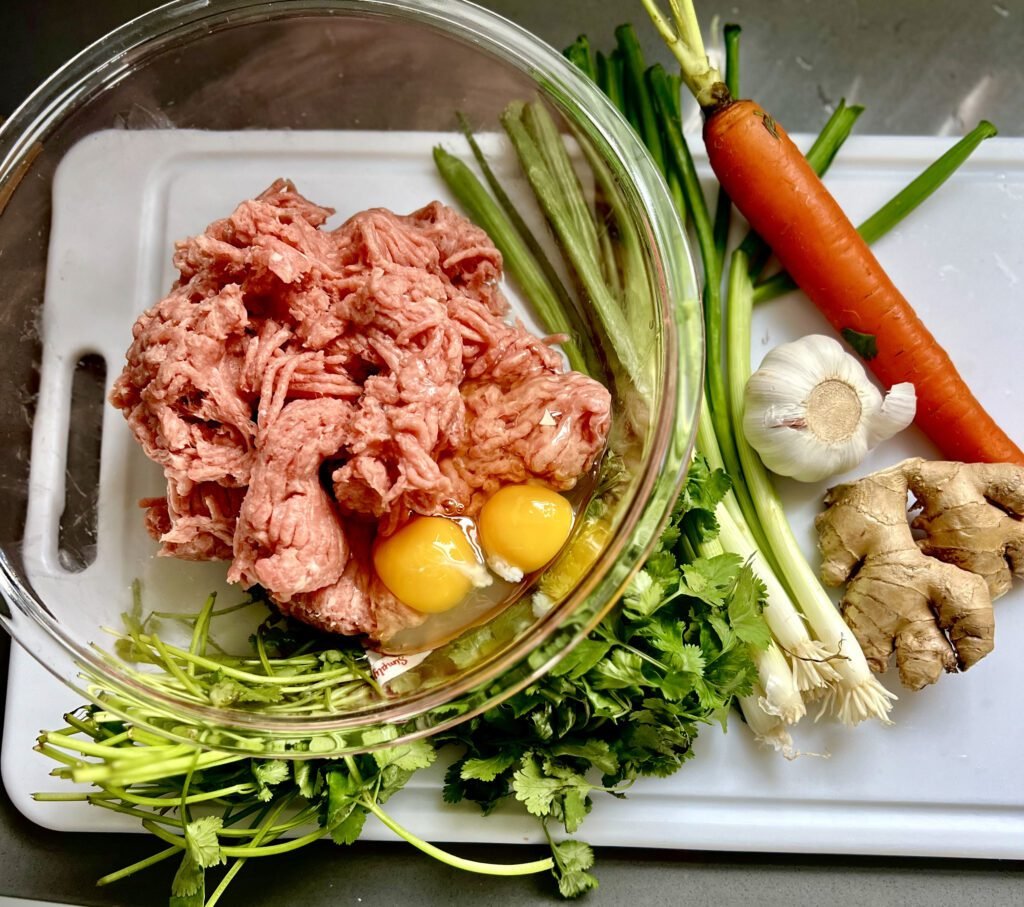
Pull all ingredients together.
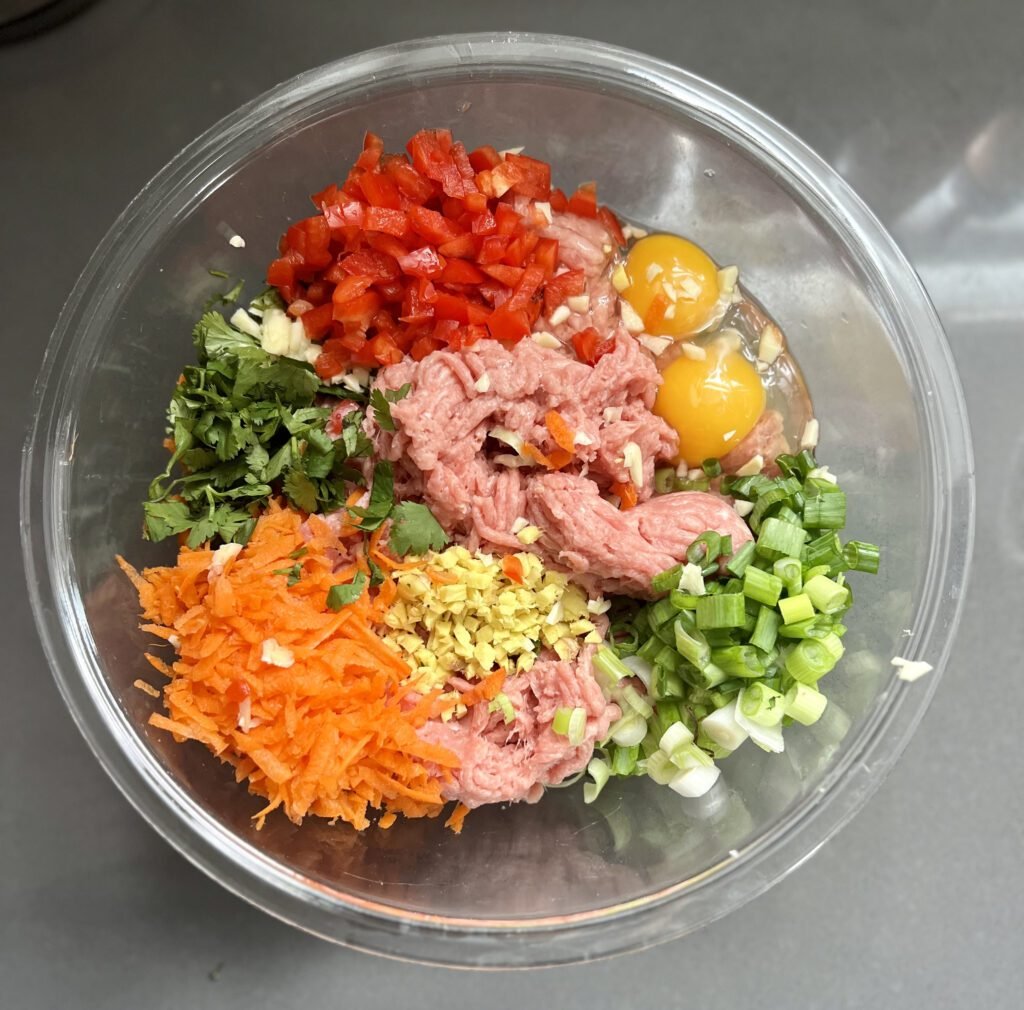
Add turkey, eggs, and all chopped ingredients to a bowl.
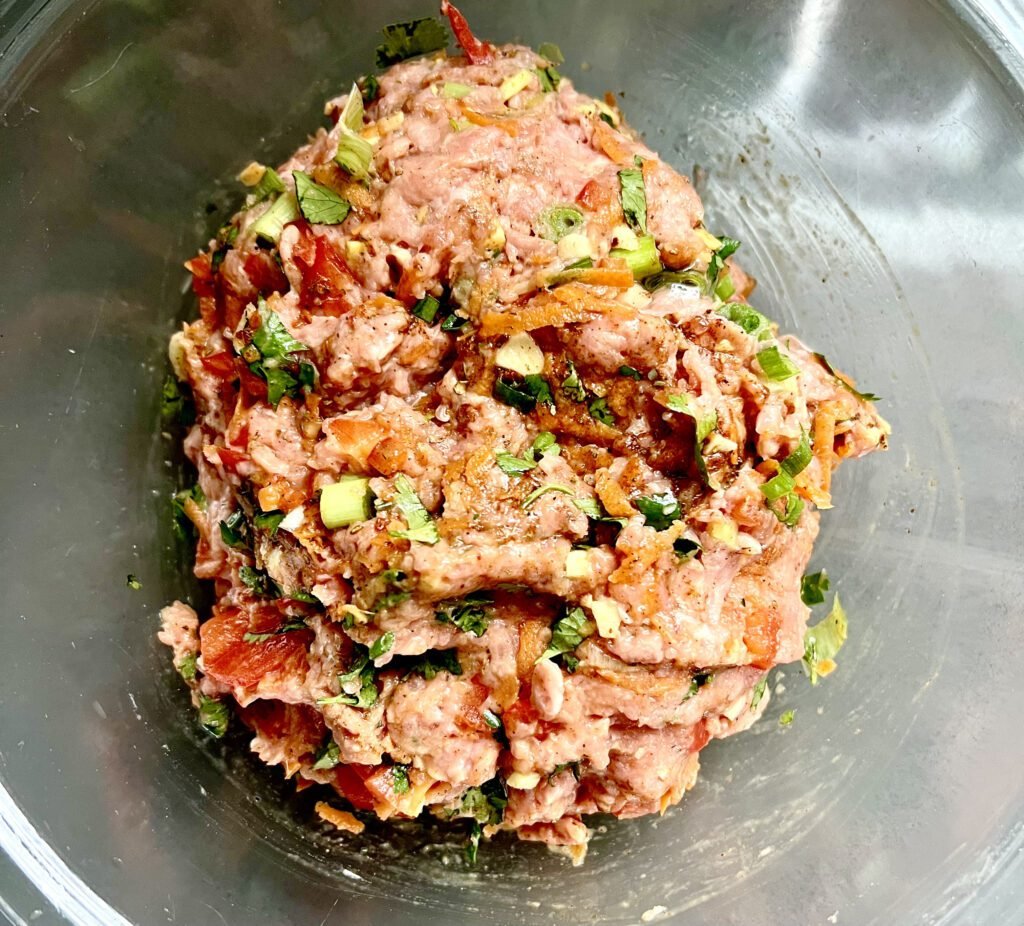
Mix all ingredients together.
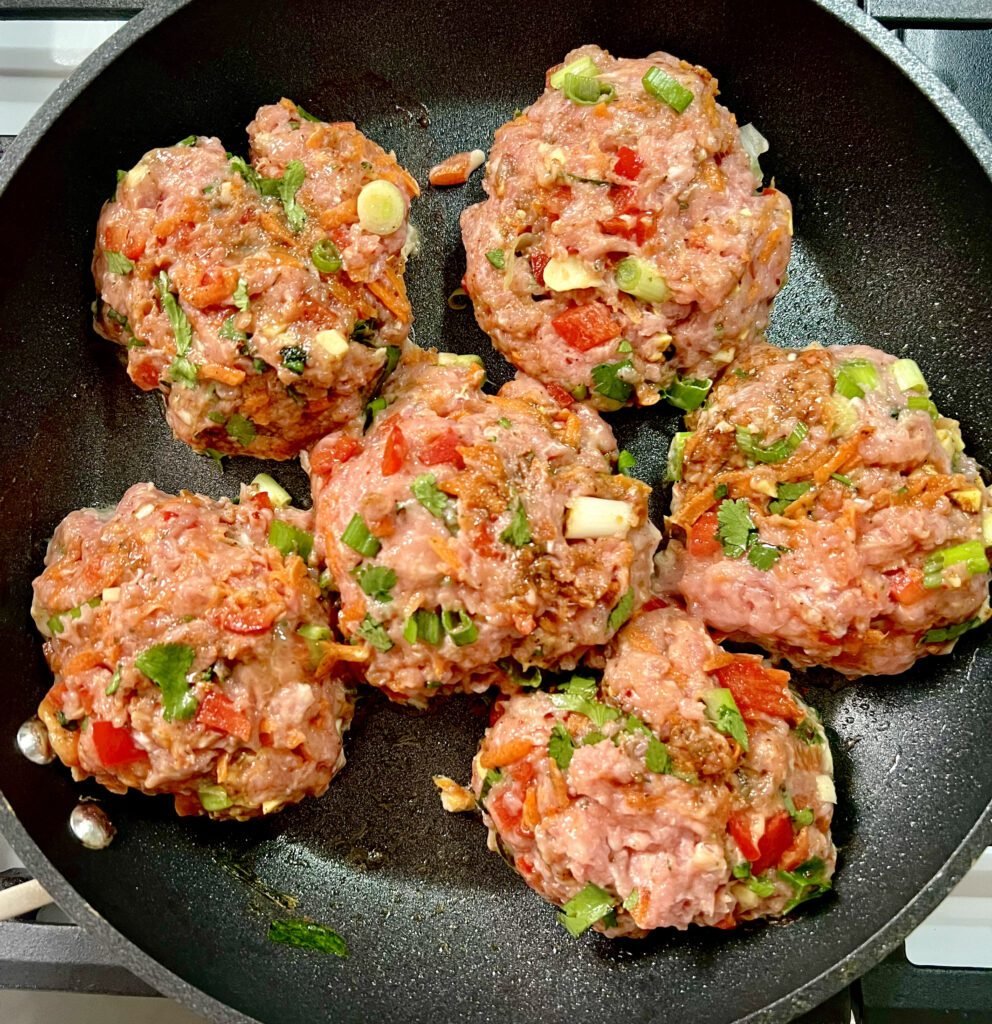
Make 6 patties. Spray pan with avocado spray. Add patties.
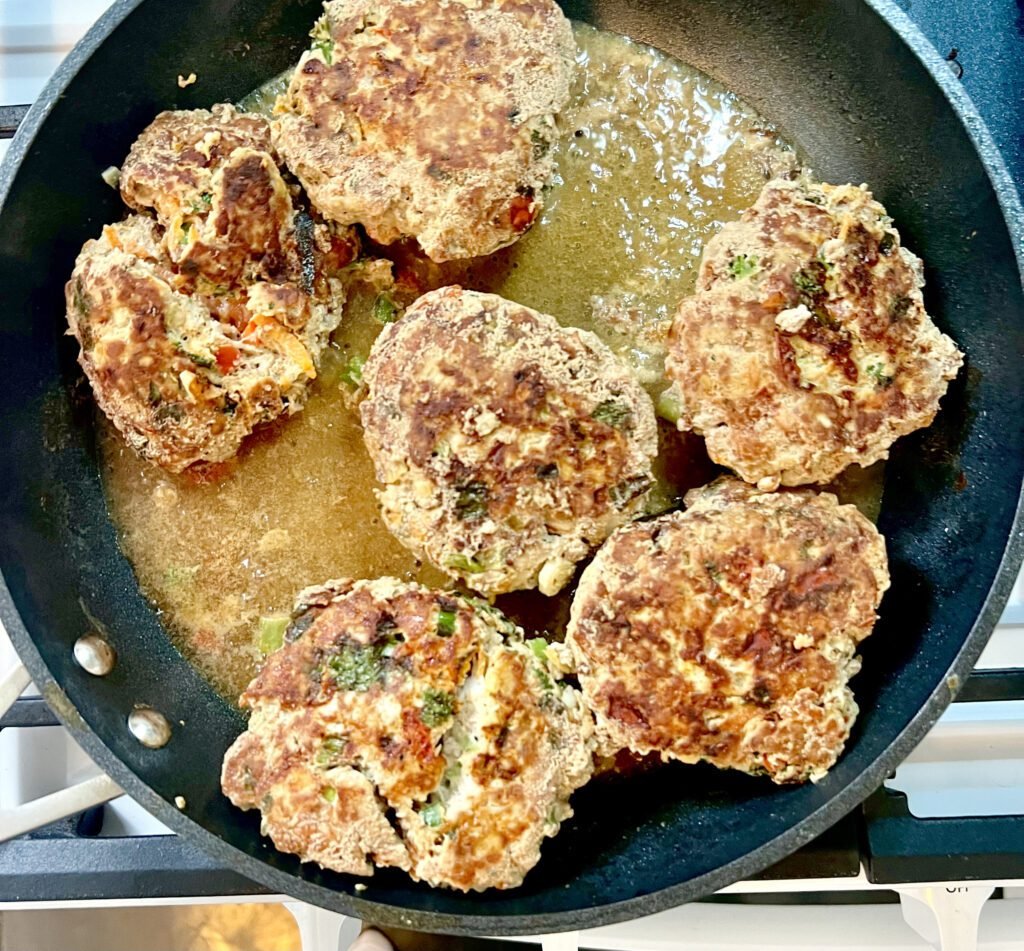
Pan fry on both sides until golden and until internal temperature hits 165F.

Coat with almond butter sauce.
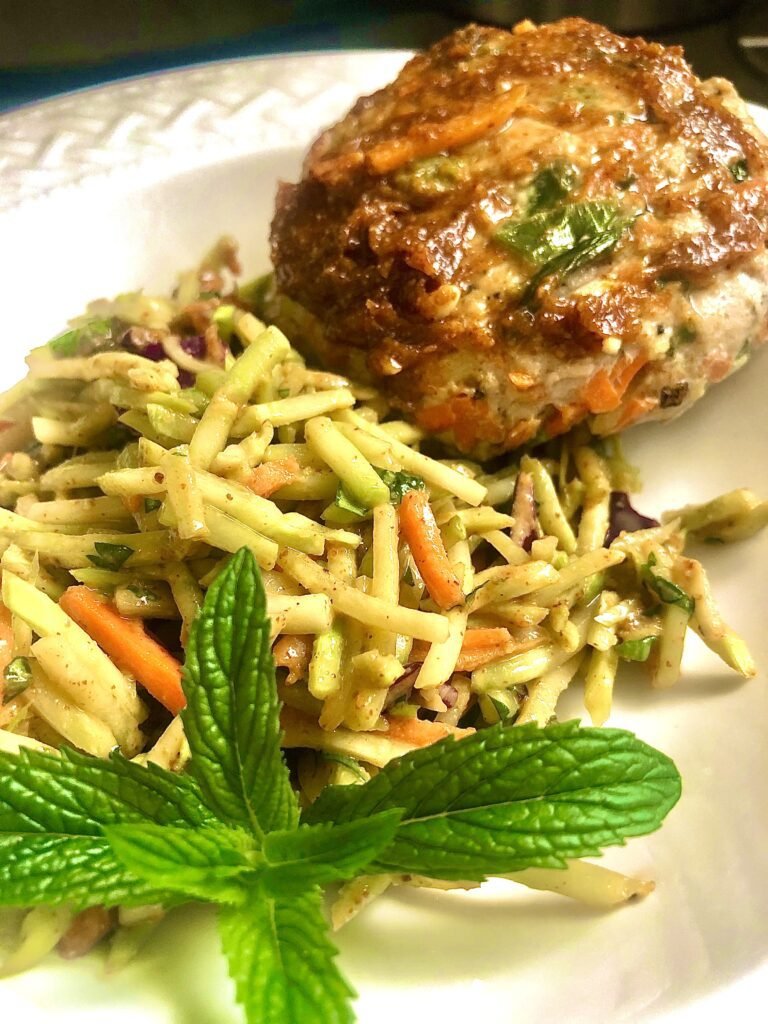
Serve with coleslaw.

KETO TURKEY BURGERS
- Total Time: 35
- Yield: 4 1x
- Diet: Gluten Free
Description
Discover a delicious and heart-healthy Keto Low-Carb Turkey Burger recipe. Enjoy the umami flavor without the high sodium of soy sauce.
Ingredients
- 1 pound ground turkey
- 2 eggs
- 1/2 cup shredded carrots, finely chopped
- 2 tablespoons finely chopped cilantro
- 2 green onion, finely chopped
- 1/2 red pepper, finely chopped
- 3 cloves minced garlic
- 1 tablespoon of minced fresh ginger
- Almond Butter Sauce:
- 2 tablespoons almond butter
- 2 tablespoon coconut aminos or soy sauce
- 1 tablespoon white vinegar
- Broccoli Slaw:
- 2 tablespoons almond butter
- 1/4 cup of white wine vinegar or sugar-free rice vinegar
- 2 tablespoon coconut aminos
- 2 cloves fresh ginger, minced
- 2 teaspoon sesame oil
- 10 oz bag of broccoli coleslaw mix
- 1 tablespoon chopped fresh cilantro
- 1 tablespoon chopped fresh mint
- 1 tablespoon chopped fresh basil
Instructions
- In a bowl combine all burger ingredients. Mix well. Make 6 patties.
- Add cooking spray to skillet. Add patties. Pan fry patties for 10 minutes per side on low or until golden on each side and internal temperature of 165ºF. Remove and set aside.
- To make nut sauce, in a small bowl combine all of the ingredients and set aside.
- To make the slaw, in another large bowl combine almond butter, vinegar, Coconut Aminos, ginger, and sesame oil. Whisk to fully combine.
- Add slaw, cilantro, mint, and basil. Toss together until well coated.
- Set in the refrigerator, covered, until needed. Serve Buddha burgers with slaw.
Notes
- The nutritional value of this dish is based on the Keto version and is approximate. One serving of burger with slaw offers 4.73 net carbs. You can make these burgers with any ground meat, including beef, chicken, and buffalo.
- (Note: The nutritional information provided is a courtesy and is approximate only. We cannot guarantee the nutritional accuracy of any recipe on this site. We cannot know what brands you use or how accurately you follow the recipe or what you like to add creatively to the dish. Use the information as a general guideline only.)
- Prep Time: 15
- Cook Time: 20
- Category: KETO LOW-CARB
- Method: SAUTING
- Cuisine: DINNER
Nutrition
- Serving Size: 1
- Calories: 210
- Sugar: 1.9
- Sodium: 300
- Fat: 14.82
- Saturated Fat: 2.3
- Unsaturated Fat: 11.5
- Trans Fat: 0
- Carbohydrates: 7
- Fiber: 2.26
- Protein: 14
- Cholesterol: 116
- UNUSUAL KETO INSTANT POT RECIPES FOR 2025 - April 27, 2025
- Boost Your Keto Diet with These Non-Alcoholic Wine Hacks - April 27, 2025
- 10 Unique & Healthy Mocktails You Need to Try - April 27, 2025


